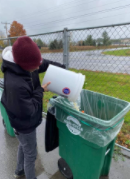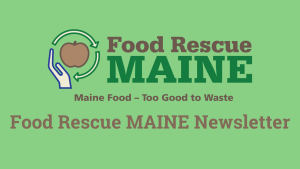Common Frequently Asked Questions
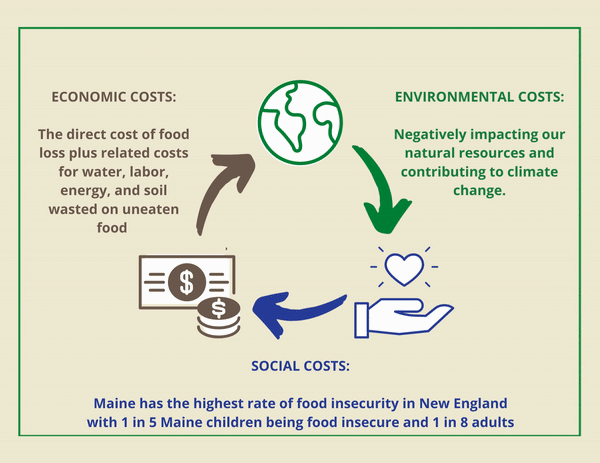
Q: What is food waste and why is it a problem?
A: “Food waste” is actually made up of food loss and food waste:
-
-
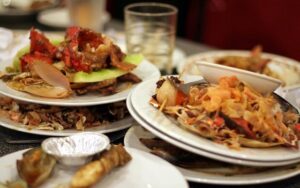
Food waste is food that is discarded rather than being eaten. This happens in households, restaurants, and stores.
-
-
-
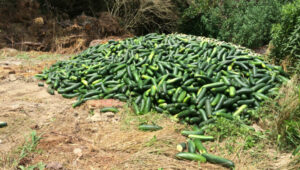
Food loss is food that is grown or processed but is unintentionally lost before it can be eaten. Food loss often occurs on farms, during storage, and during the transportation of food. Click here to learn more about food loss.
-
Up to 40% of the U.S. food supply goes uneaten every year. This wasted food has serious social, environmental, and economic costs. According to the USDA, food waste costs the U.S. economy $160 billion dollars a year. On a household level, an average U.S. household of four wastes $1600 of food annually.
Food waste is a HUGE issue in Maine.
More shocking is that while all this food is being wasted, Maine has the highest rate of food insecurity in New England, with 1 in 5 Maine children being food insecure and 1 in 8 adults. Fortunately, this problem has a simple solution-
Q: Why does Food Rescue MAINE have six solutions for food waste?
A: The Food Rescue MAINE program has six different solutions because we need to stop both food waste and food loss in our food system using ALL the strategies identified in the Maine food recovery hierarchy – reduce, recover, recycle.
- Measure, track, and save- We developed home and business food waste trackers to measure how much food you are wasting – as well as provide the insights needed to reduce that waste.
- Feed people – We are testing a successful “food rescue software system that uses zip codes to connect: 1) Maine food donations, 2) Mainers who need food, and 3) volunteers willing to transport the food.”
- Educate – We educate Mainers of all ages to reduce food waste through a communication program featuring our website, social media, and school and community programs. Our annual Maine Food Waste Solutions Summit is a statewide education effort.
- Build farm food processing – We work with farmers to develop infrastructure needed to recover their farm surplus and feed people.
- Increase food donation – We offer a Maine Food Donation Toolkit to encourage businesses and organizations to recover and donate their good edible food to feed people in their community.
- Divert food from landfills – We help build local Maine food recycling programs including curbside collection, community drop-off sites, and home composting to recycle food and return the valuable nutrients and energy to benefit the community.
Q: Why do I see different rules about what food can be put into different compost and food recycling programs? For example, my home composter says not to compost meat and dairy, but my community drop-off site says that all food can be recycled.
A: Home composting piles often do not reach high enough temperatures to break down things like meat and bones.
For home composting, you may need to avoid adding things that are difficult to break down like meat and bones or use a compost thermometer and refine your compost “recipe” (mixing “greens” and “browns”) to reach higher temperatures.
For transfer stations and curbside collection services, a good rule to follow is that only food should be composted. While your particular compost or food recycling service might accept non-food materials like paper, this allows for the possibility of contaminants entering the process. We suggest that only food be used in recycling programs.
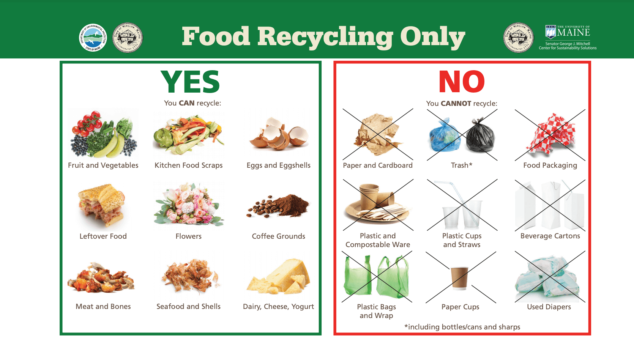
Q: I would like to start recycling my food waste, but my community does not have a food recycling drop-off site – what to do?
A: Just because your community does not have a food waste drop-off site, this does NOT mean that you cannot recycle your discarded food.
In Maine, there are other food recycling options like home composting. To learn how to start your own home composting effort, click here.
In addition, there are private curbside collection services that will pick up your food scraps at your doorstep and recycle them at their own facility. You will pay a small monthly fee in return for this service. In Maine, there are several different curbside providers in various areas of the state. Click here to find out where you can compost.
Finally, you can be the food recycling champion for your community by working to develop a community food recycling drop-off site at your transfer station or another convenient location in town. Talk with your public works director and town manager to see what’s possible. And contact the Mitchell Center if your community would like assistance in this effort. We have lots of experience and material to share! Click here to learn how you can get involved.
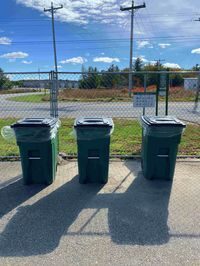
Q: Can individuals really make an impact?
A: Individuals can absolutely make an impact on ending food waste in Maine!
The reality is that in the ‘developed’ world, more than 50% of food waste takes place in our homes. We all eat food every day, so we can have an impact just by making changes at home. Simply changing a few small habits in your everyday life can dramatically reduce food waste: “take less” – purchase and prepare food more carefully to cut waste, “share more” – donate food to feed people and then animals when you cannot use it all yourself, and “recycle always” – throw your food scraps in a compost bin instead of the trash can.
